Family members of the
six detained Mongolian herders, namely Mr. Tulguur, Mr. Tugusbayar, Mr.
Jargalt, Mr. Nasandalai, Mr. Munkhbayar and Mr. Ulaanbar, from Bayannuur
Gachaa (a gachaa consists of several villages) of Shinsume Sum (sum is
equivalent to a township) in eastern Southern (Inner) Mongolia’s Ongniud
Banner (“weng niu te qi” in Chinese), were given a notice by the Chinese
authorities informing them of the scheduled trial of the six detainees at
the Ongniud Banner People’s Court on November 13, 2013, at 9:00 a.m. in
Beijing Time.
The six herders were
taken away by police after a clash with Chinese workers from a state-run
forestry company named Shuang He Forestry that illegally occupied their
grazing land. Following more than three weeks of detention and
interrogation, they were formally arrested on June 24, 2013, for alleged
involvement in “sabotaging production and management.” On September 13,
2013, the Ongniud Banner Public Security Bureau transferred the case to the
Ongniud Banner People’s Procuratorate to prosecute the six herders.
According to Ms.
Sarangowaa, wife of the detained herders’ leader Mr. Tulguur, as a “kill the
chicken to frighten the monkey” message to all Southern Mongolian herders,
the Chinese authorities are determined to hand down harsh sentences,
possibly up to seven years in jail to the six detainees.
“All six herders are
preparing to plead not guilty at the trial. We really would like any foreign
journalist from Beijing or elsewhere to come observe and cover this unjust
trial,” Ms. Sarangowaa told the Southern Mongolian Human Rights Information
Center (SMHRIC) over the phone.
“We tried to contact
local news media for a possible coverage of the trial. But all of them told
us that they have been given an order from the higher authorities not to
cover any case of herders’ protests and grazing land appropriation,”
Sarangowaa added. More information on the case is available on our website
at:
http://www.smhric.org/news_501.htm and
http://www.smhric.org/news_498.htm. The contact information of the
family members and lawyers of the detainees can be provided by SMHRIC upon
request.
In another similar
case, three Mongolian herders, namely Mr. Tsengelt, Mr. Erdendalai and Mr.
Erhembayar from Halgait Village, Ar-hundelen Township of eastern Southern
Mongolia’s Zaruud Banner, were taken away by police 10 days ago as the
Chinese Communist Party Third Plenary Session of the Eighteenth Central
Committee approached.
Mr. Galsang, uncle of
Tsengelt, told SMHRIC over the phone that the three herders are currently
being held at the Zaruud Banner Detention Center.
“The Public Security
Bureau refused to give us a legal explanation of the arrest and detention.
They said they already sent us the detention warrant via mail,” Galsang said
when asked what was the justification of the arrest and detention, “but we
haven’t received any such warrant.”
According to SMHRIC’s
previous communications with Mr. Tsengelt, the local government has
illegally appropriated a large piece of the herders’ grazing land and sold
it to Chinese mining companies including Lu Huo Coal Mining and Yi Cheng
Coal Mining without the free, prior and informed consent of the herders.
Under the leadership
of Tsengelt, the herders organized themselves and staged multiple protests
to urge the authorities to return their land. As a result, the herders have
been subjected to frequent police raids and detentions. In 2012 more than 30
herders were arrested and detained.
In July 2013, Tsengelt
told SMHRIC that the Public Security Personnel placed him and several other
herders under house arrest and guarded them around the clock in their
residences. To prevent the herders from marching elsewhere to stage
protests, the Banner Public Security Bureau confiscated the identification
cards of all herders.
In August 2013, the
local government issued a document entitled the “Zaruud Banner People’s
Government Notice on the Implementation of the Resettlement of Ar-hundelen
Area Ecological Migrants” (see below the original document). According to
the document, nine villages of the Mongolian herders were subjected to
displacement from land.
“More than 1200
herders from about 400 herders’ households have been ordered to give up the
grazing land to move to the suburban Lu Bei, capital of Zaruud Banner,”
Galsang told SMHRIC about the forced resettlement project that triggered
further resistance from the herders.
“No one was willing to
give up their homes and land. But our houses are demolished, and the entire
community has disintegrated,” Galsang, who managed to find a temporary
shelter in the town of Lu Bei, expressed his anger over the phone.
“The government
promised us apartments and jobs, but none have materialized,” Galsang added.
Appeal from family
members of detainees of Ongniud Banner
to news media
|
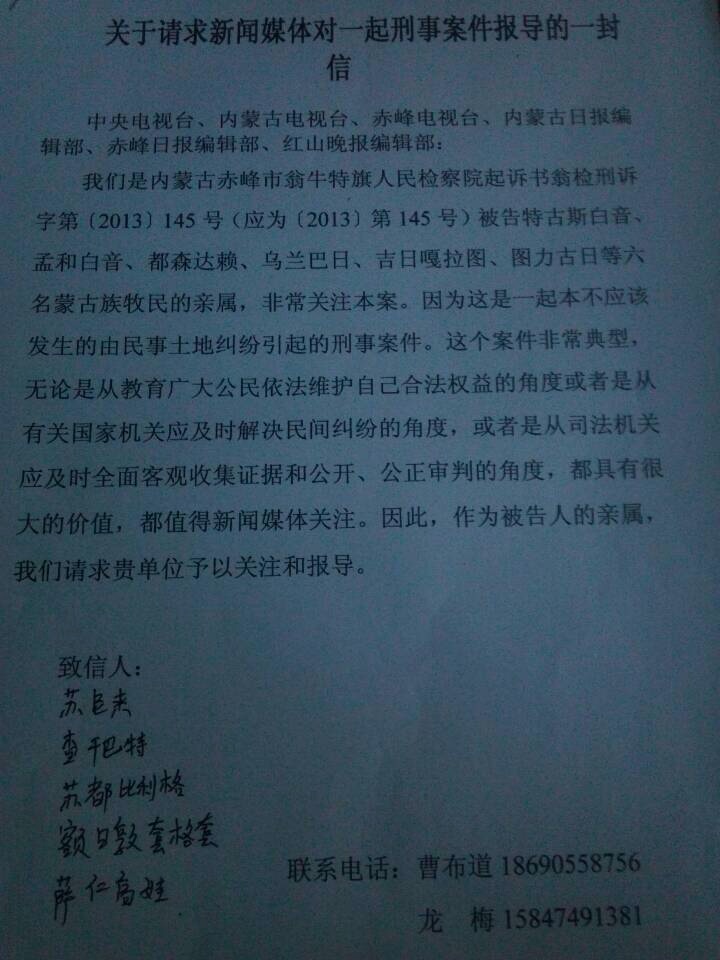
Bill of Indictment against
six herders of Ongniud Banner
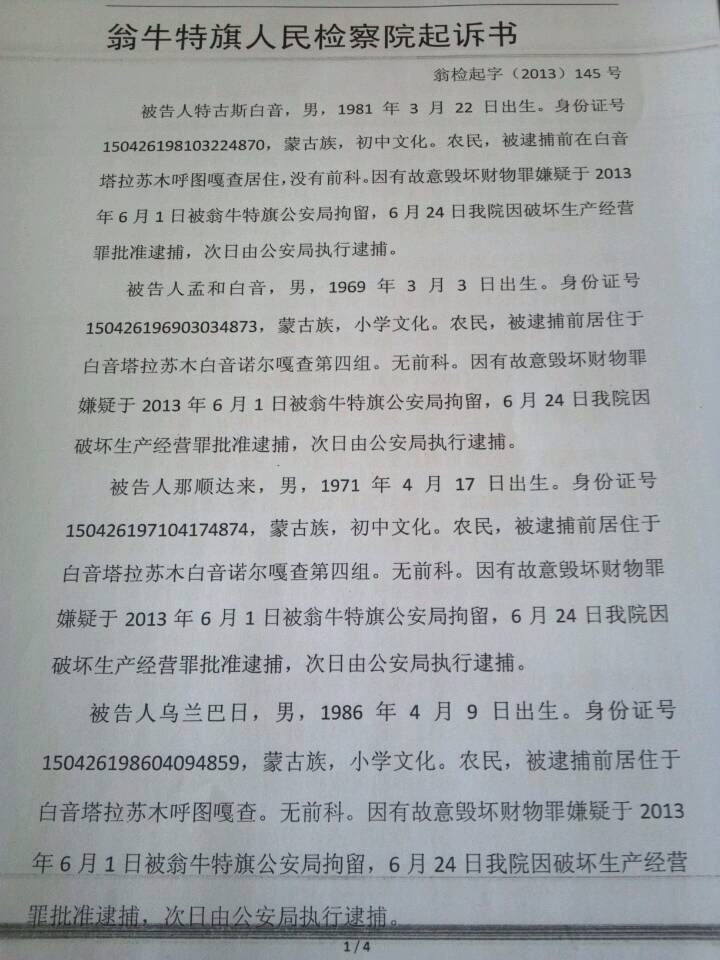
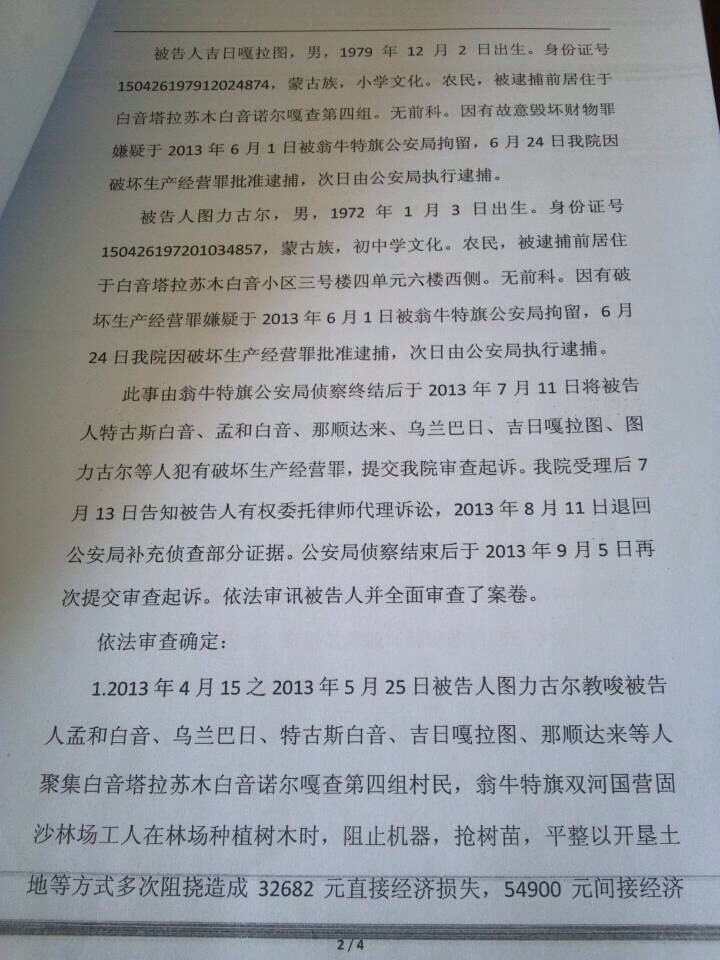
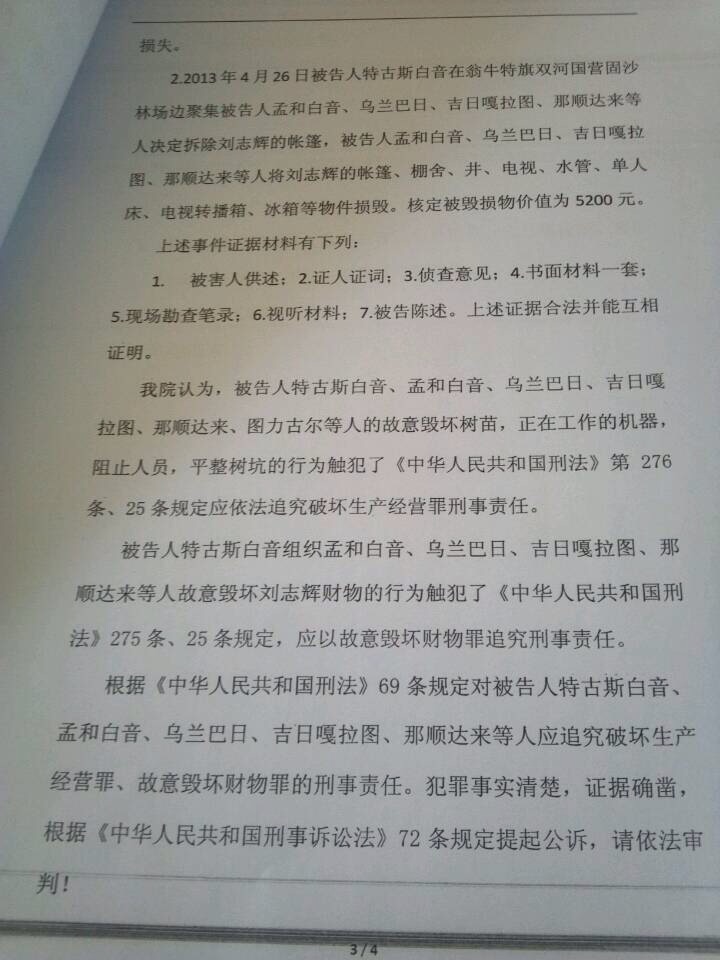
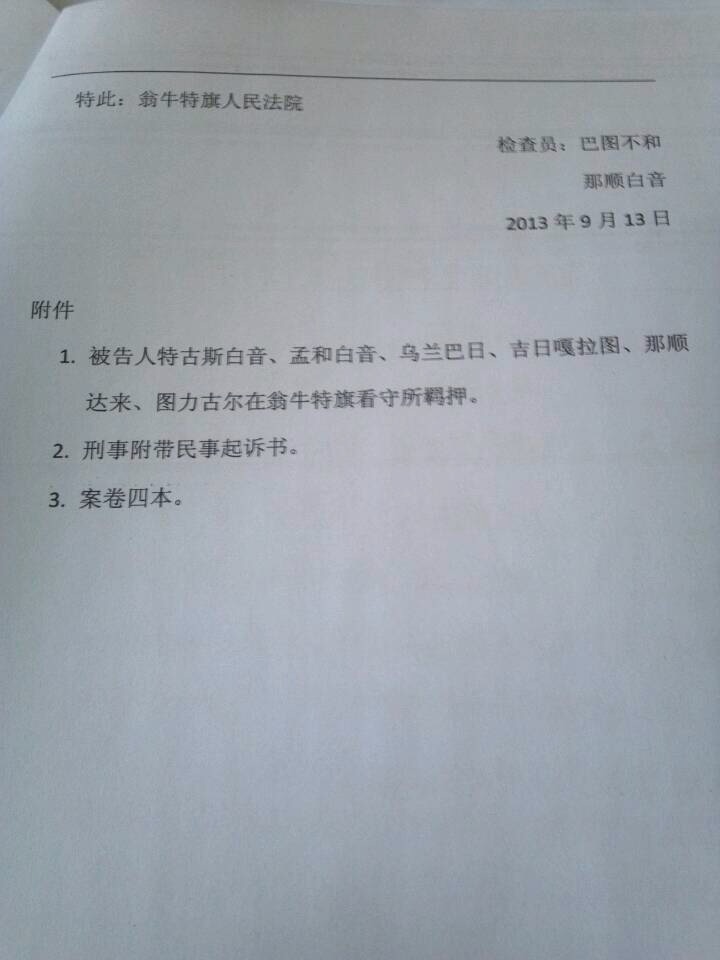
"Zaruud Banner People’s
Government Notice on the Implementation of the Resettlement of
Ar-hundelen Area Ecological Migrants"
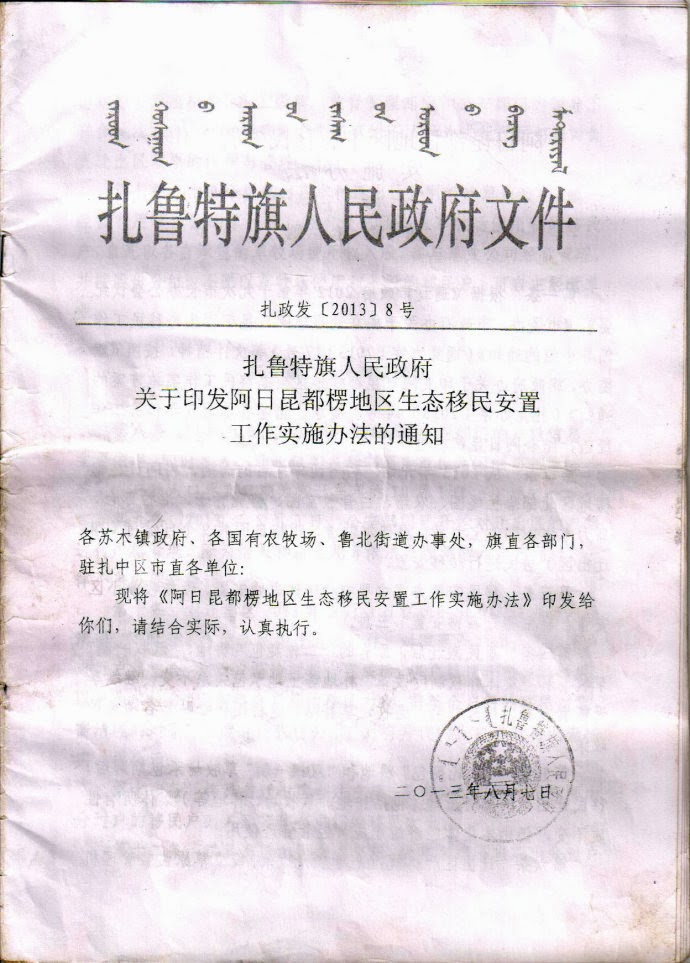
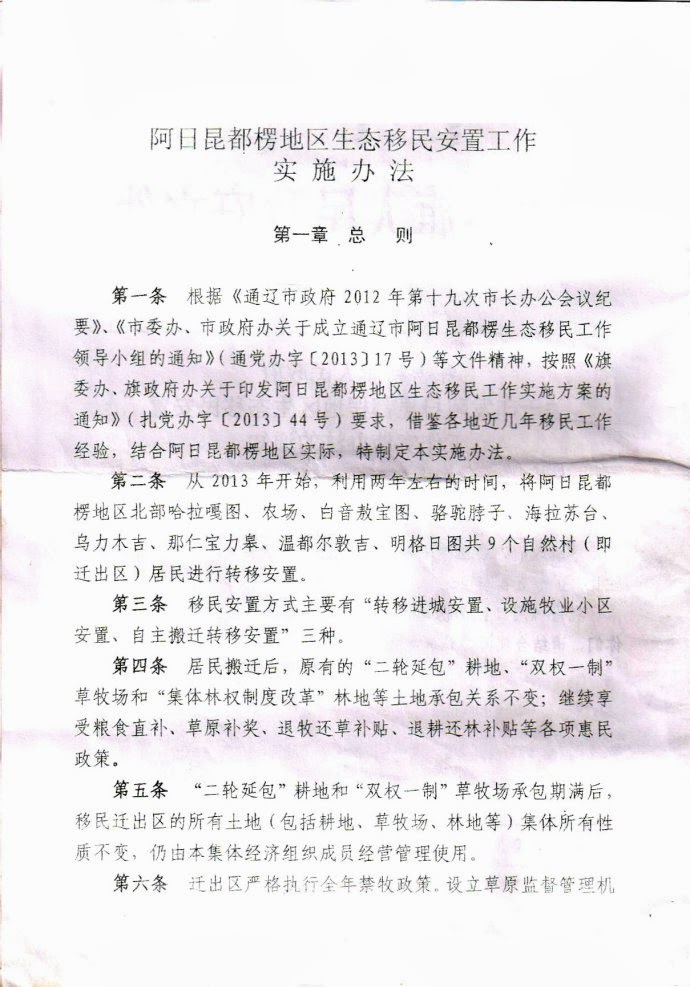
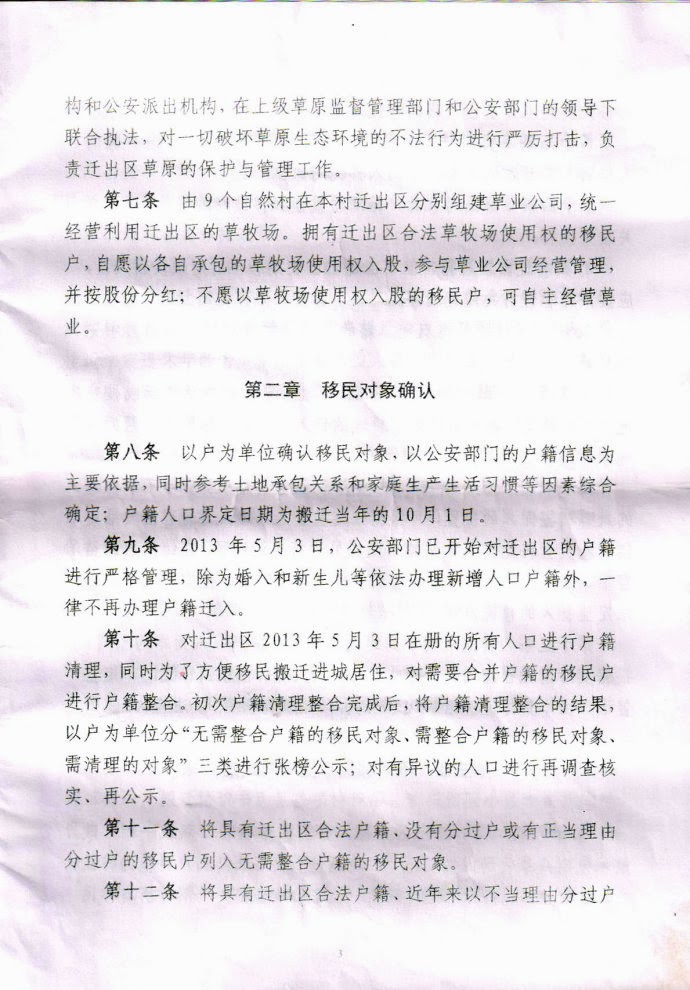

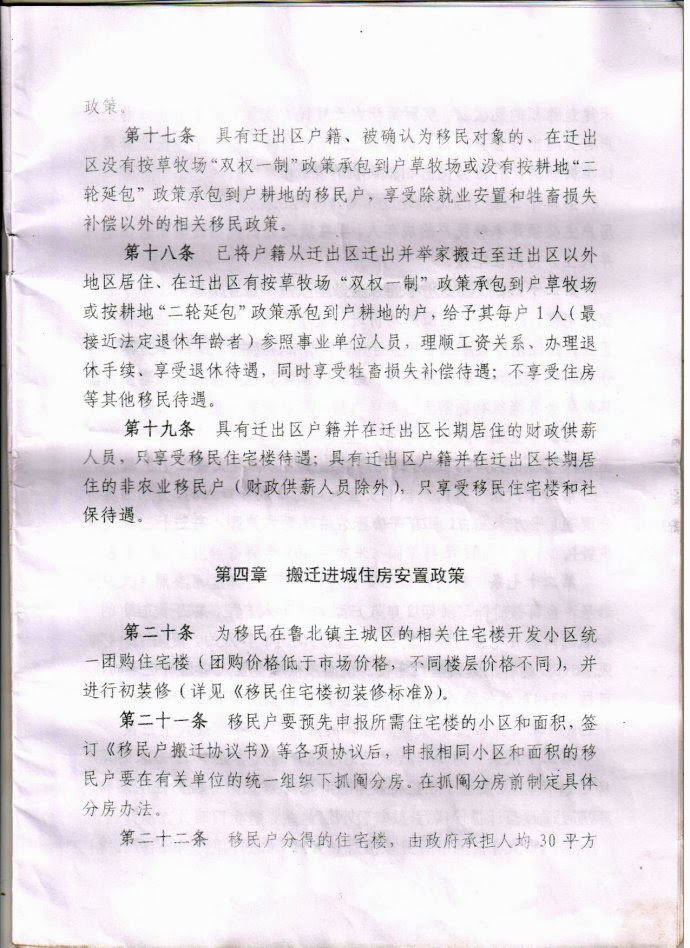
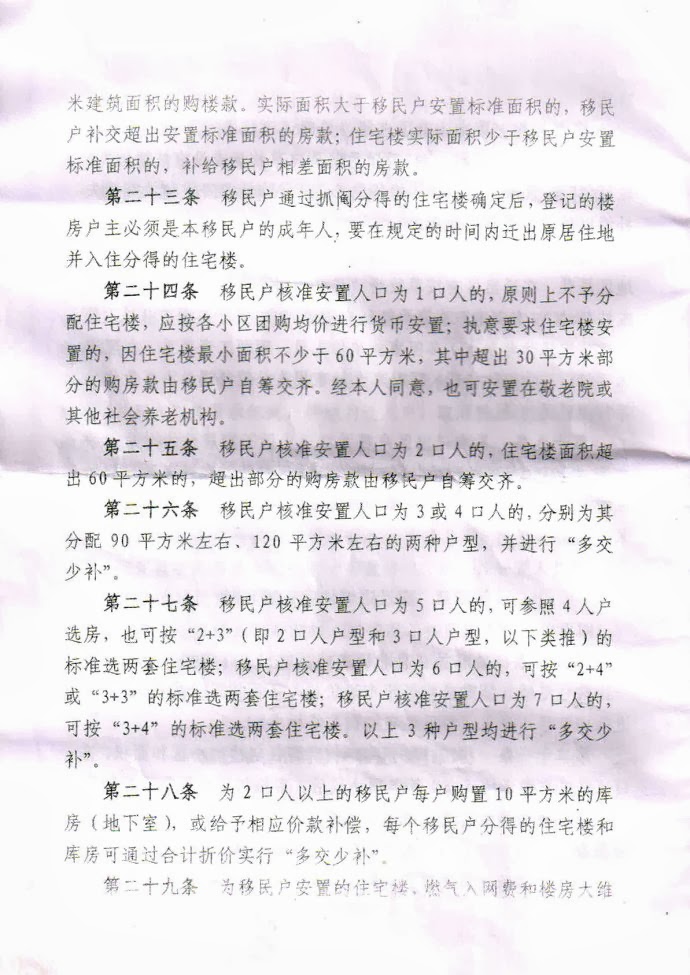
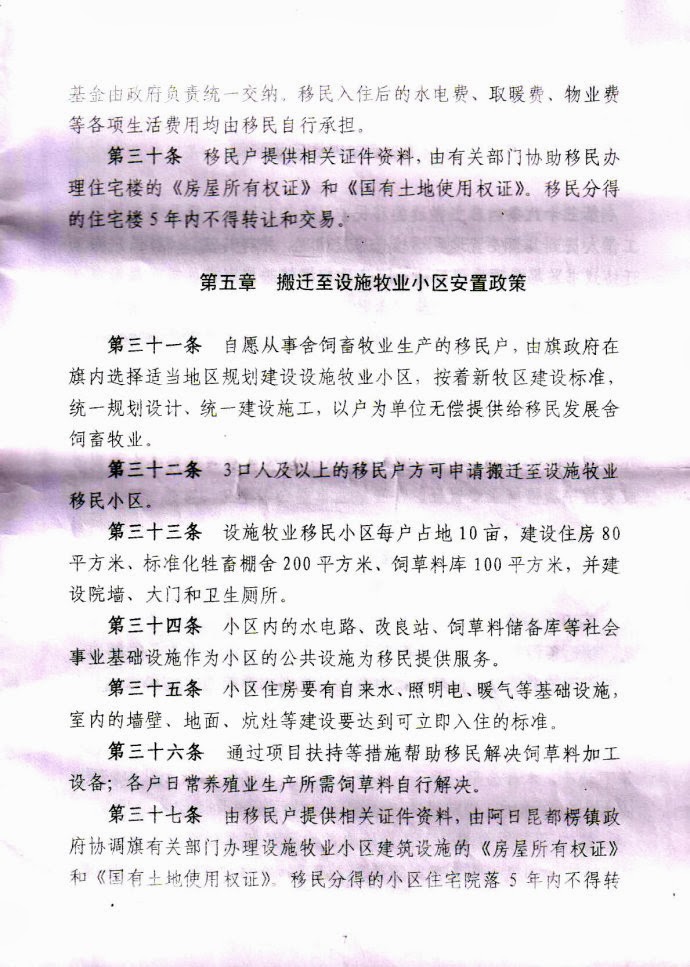
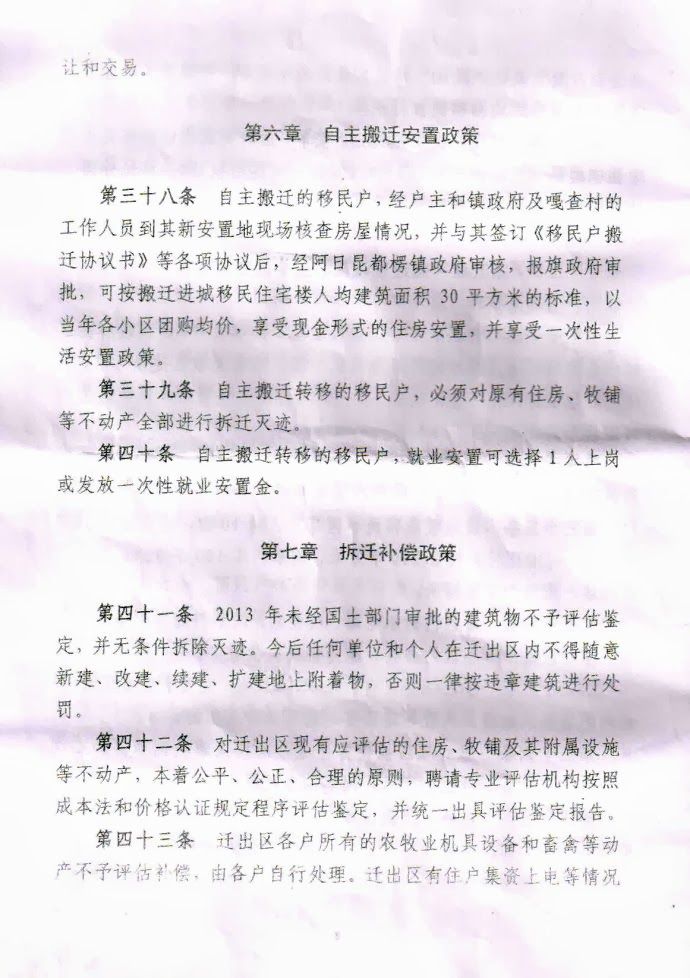
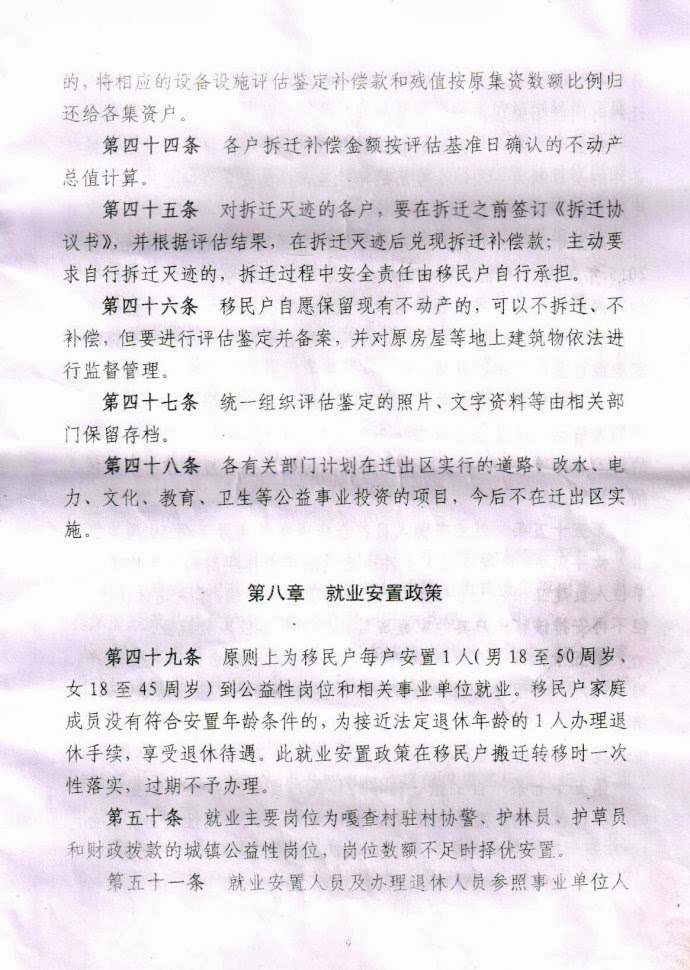
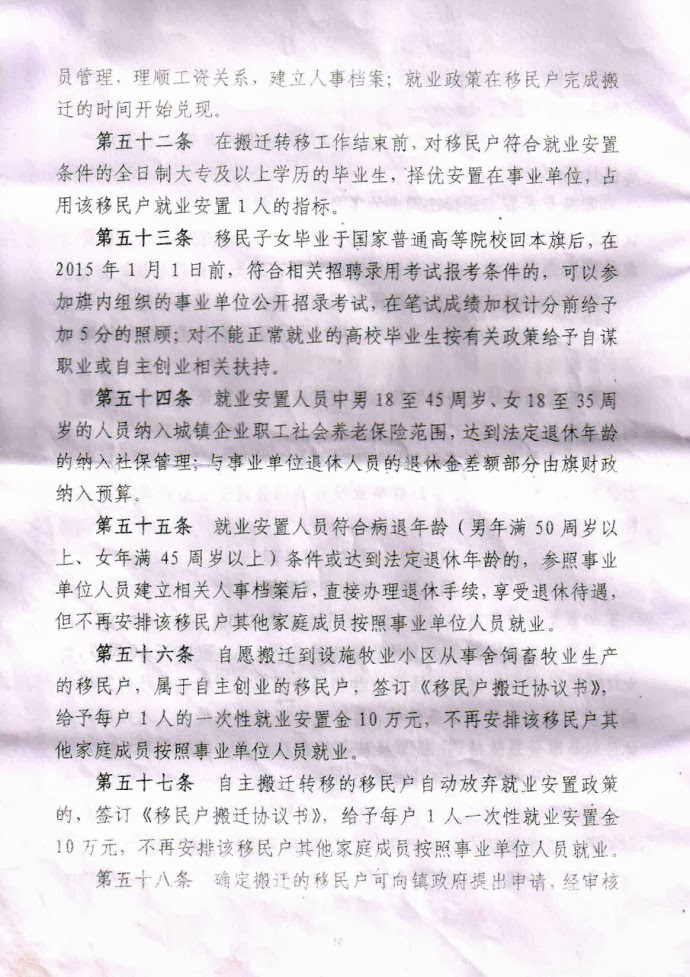
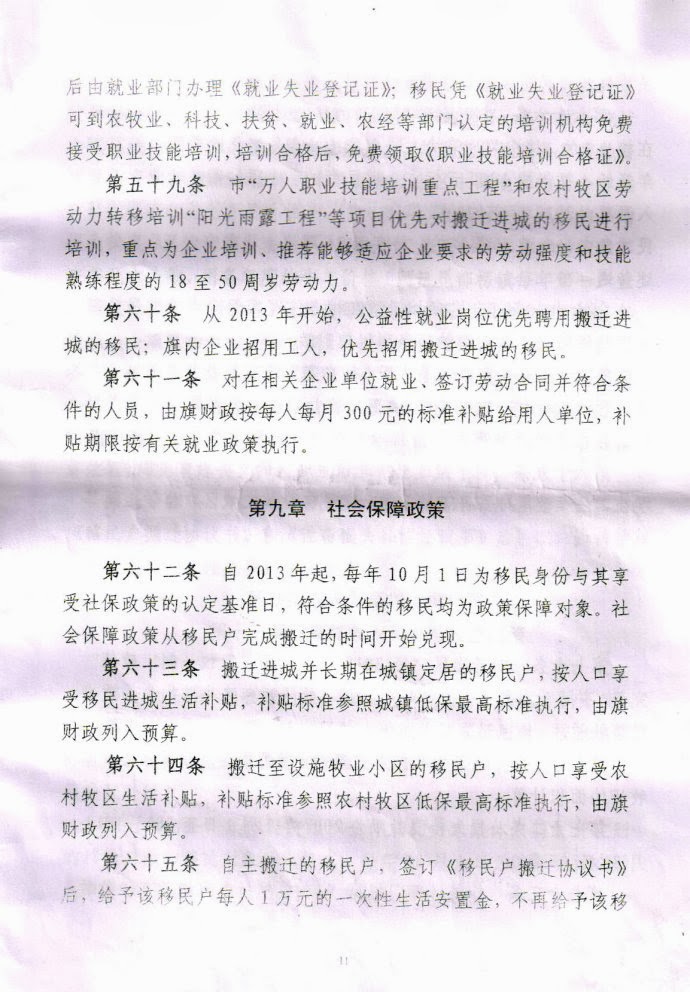
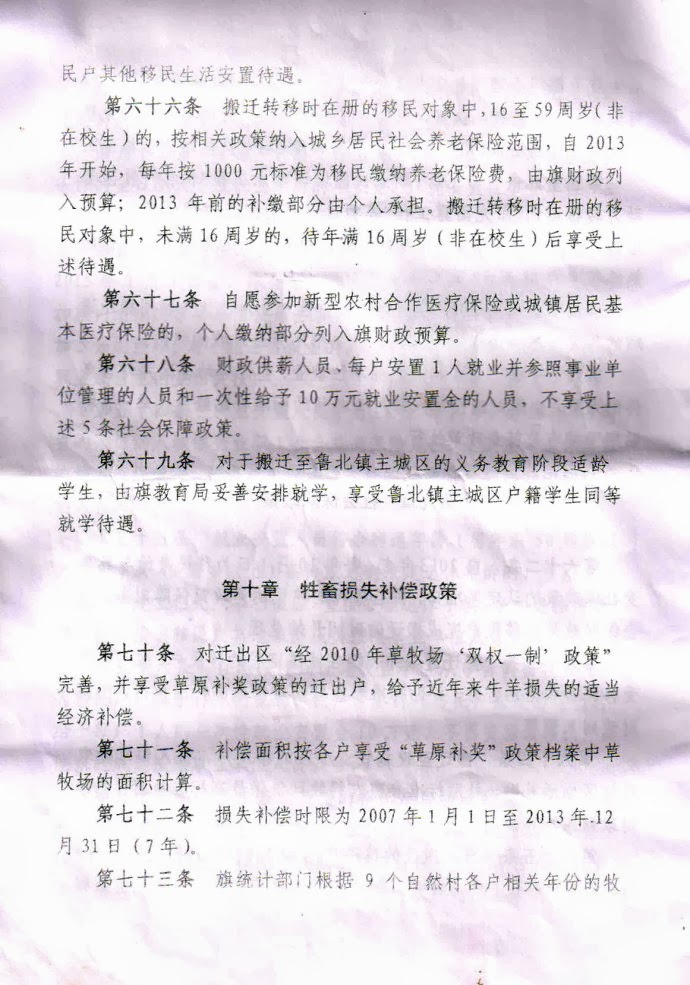
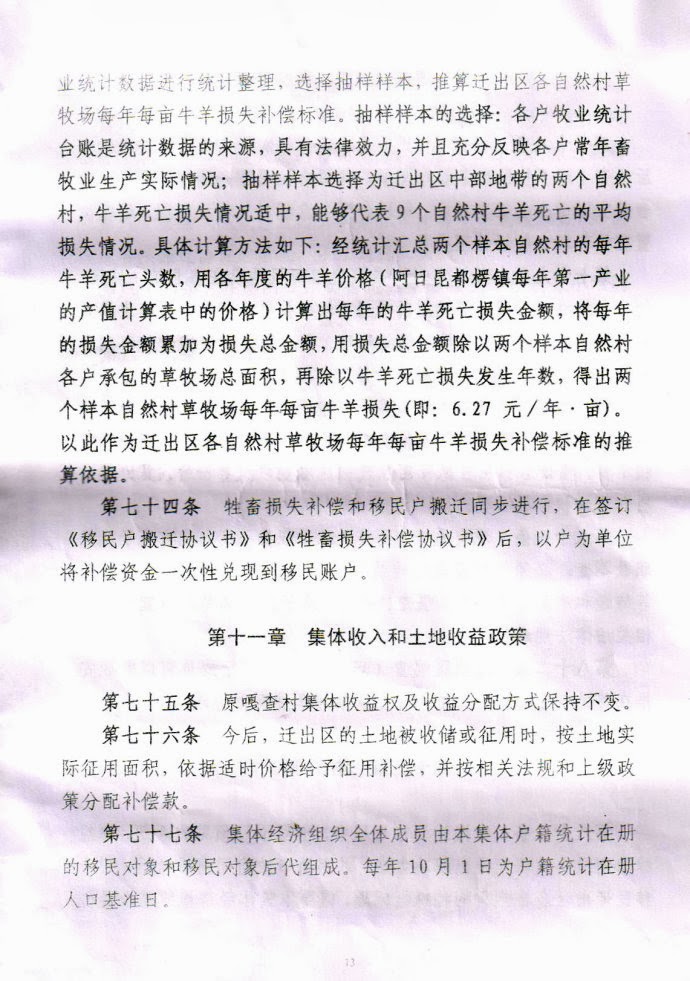
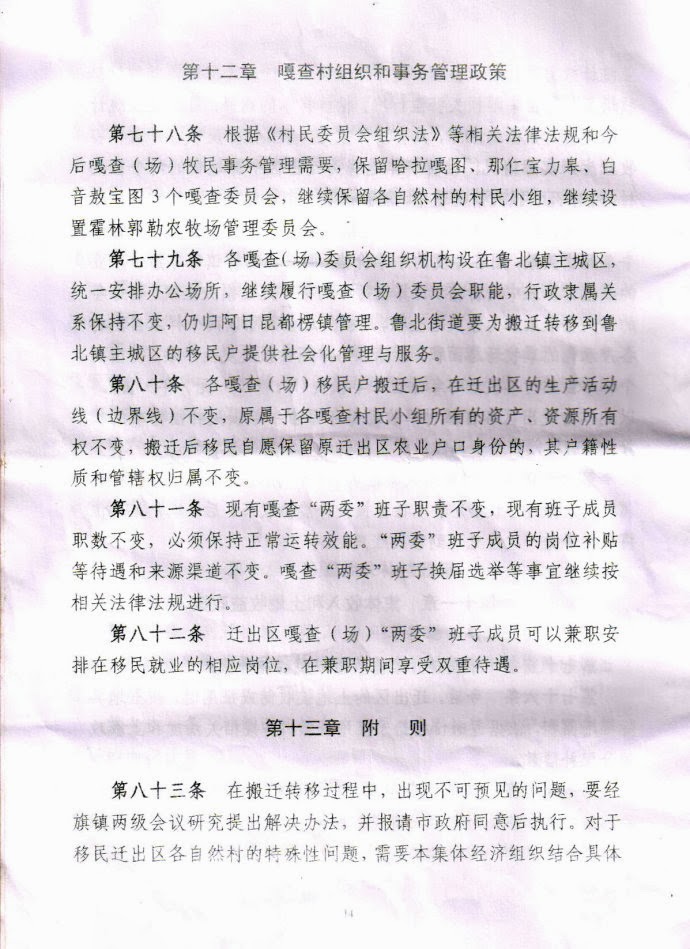
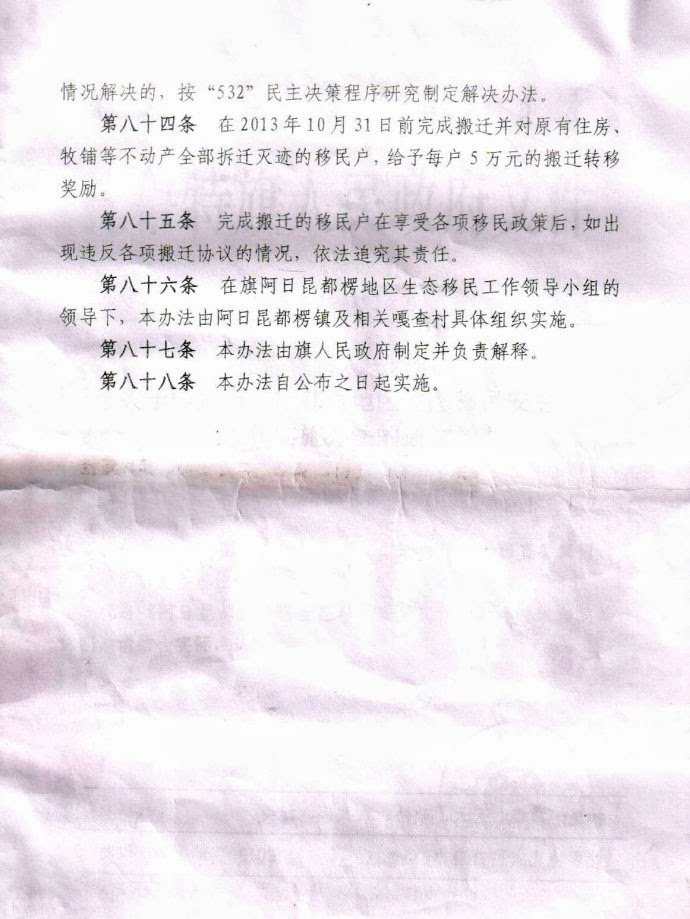
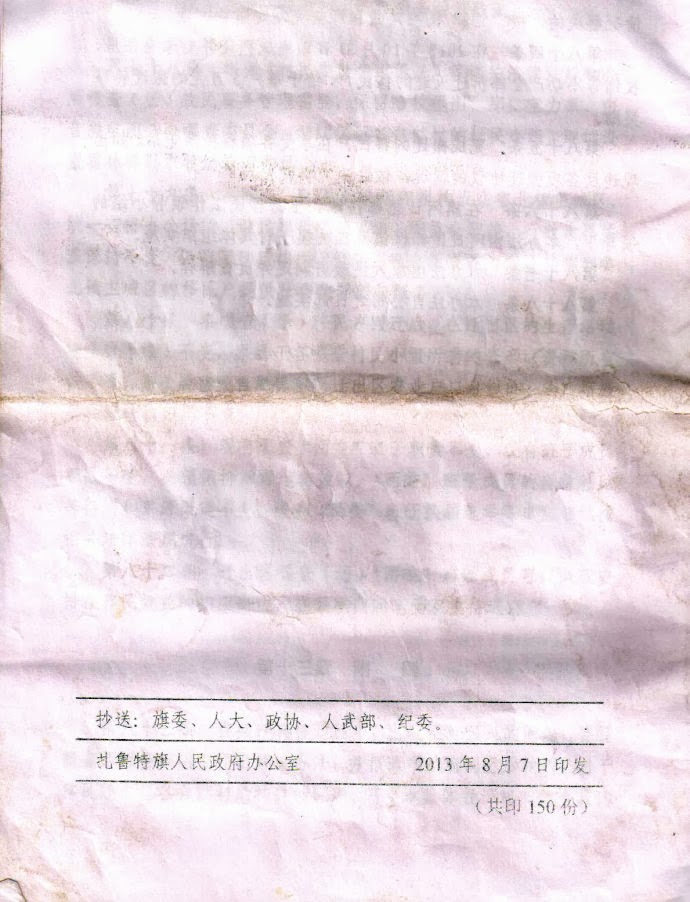 |
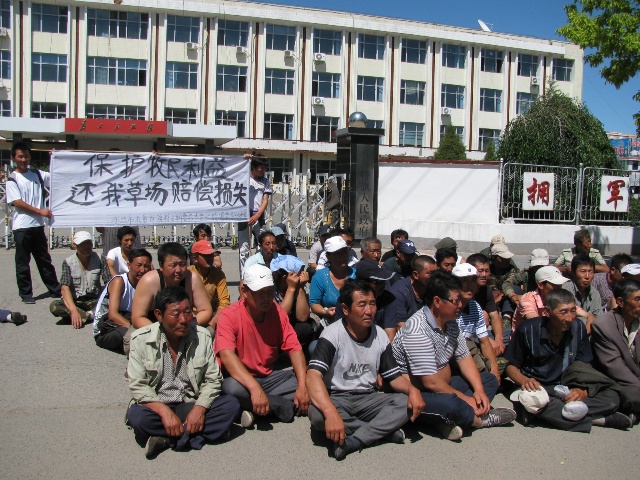





















 Beyond
Great Walls: Environment, Identity, and Development on the Chinese
Grasslands of Inner Mongolia
Beyond
Great Walls: Environment, Identity, and Development on the Chinese
Grasslands of Inner Mongolia China's
Pastoral Region: Sheep and Wool, Minority Nationalities, Rangeland
Degradation and Sustainable Development
China's
Pastoral Region: Sheep and Wool, Minority Nationalities, Rangeland
Degradation and Sustainable Development The
Ordos Plateau of China: An Endangered Environment (Unu Studies on
Critical Environmental Regions)
The
Ordos Plateau of China: An Endangered Environment (Unu Studies on
Critical Environmental Regions)